43 private label advantages and disadvantages
Private Labeling in Retail: How It Works, Pros and Cons Advantages of private label brands Production ownership When a retailer orders a product to be manufactured on their own terms, the retailer has control over what they receive. They have a direct business deal with the manufacturer, so they can have control over the design, the materials, and the quality of the finished goods. Profit margin What Is a Private Label? | Indeed.com - Indeed Career Guide In this article, we discuss what a private label is, how private-label branding works, the differences between private label and name brand and the advantages and disadvantages of selling private label products. What is a private label? A private label is a brand of products made by a third-party company and sold as a retailer's own brand.
Private Label vs. Contract Manufacturing: Which Is Right for You? Disadvantages of Private Label Manufacturing. While this is an excellent option for many businesses, it does have a few downsides: ... Private label and contract manufacturing each offer unique advantages depending on your product. Consider the scalability and originality of your product when deciding which method is best for you. Also ...
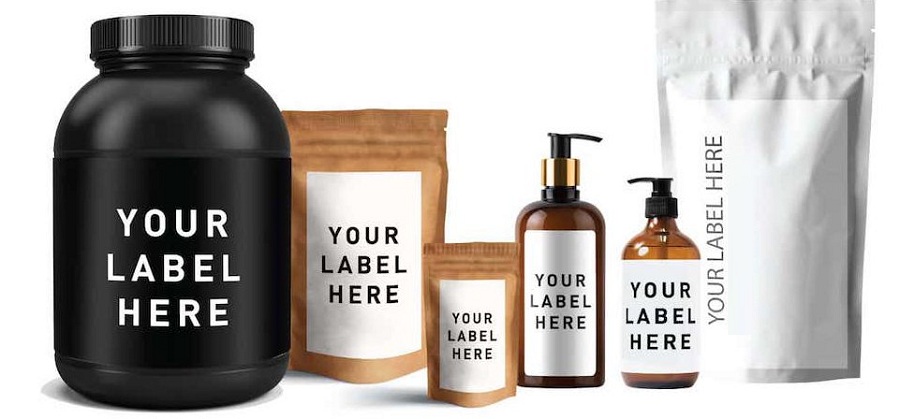
Private label advantages and disadvantages
Advantages And Disadvantages Of Private Label Brands Advantages And Disadvantages Of Private Label Brands. 1. INTRODUCTION. An Indian retail industry is one of the fast emerging sector across the world. Retail industry in India is anticipated to grow up to US$ 950 billion by 2018, with the compound annual growth rate (CAGR) of 8.9 per cent from year 2000 to 2018. What Is a Private Label? (With Advantages and Disadvantages) Private label businesses also incur less overhead costs as they spend less on marketing and advertisements. This strategy allows them to sell at a reduced price and attract more customers. Higher stability Retailers usually depend heavily on product stability to keep the businesses running. Private Label Branding (With Advantages and Disadvantages) Advantages of a private label. The advantages of a private label include: Control over production: It enables retailers to instruct a supplier on the ingredient, size, design, and production methods they can use. Through this, the retailer can ensure the quality of its product. ... The disadvantages of a private label include:
Private label advantages and disadvantages. Private Brand Definition - Investopedia Private Brand: A brand placed on products that a large manufacturer has created for a smaller retailer. The smaller retailer places their own private brand label on the final good which was ... What is a Private label? Meaning, Advantages & Disadvantages Following are some drawbacks of private brand: Absence of Standardisation: At times, the private labels fail to live up to the standards of quality which may create discontentment among customers. Low Prices: The products under private labels are considered to be substandard by some customers because their prices are lower than the national brands. Pros and Cons of private labelling - Orderhive Private labeling requires highly efficient and optimized inventory automation for sellers to make the most out of their business. Private label products carry the name of the seller but are manufactured by a third party. The manufacturers and suppliers of such items sell those products as a white label to online stores. Private Label: Meaning, How It Works, Advantages and Disadvantages Other advantages of private label are: Advertisement Lower price. Indeed, some products may be perceived as premium products, according to the owner's image. However, they are generally cheaper. Owners try to increase supply to meet consumer demand. Lower prices allow them to sell more products.
What are Private Label Rights (PLR) and How are They Used? - Thomasnet Private label rights' main advantages are the flexibility and time savings that come from using prewritten content. Since this type of content sits on the scale between custom written content and reposting, it allows for the best of both worlds. ... PLR Disadvantages. However, PLR content is not a magic bullet. There are some downsides to not ... What is Private Labeling? [Definition, Pros, Cons & More] - Ecommerce CEO Many private labels succeed because good marketing creates demand for the product. Disadvantages of Private Labeling There are many good things about starting a business with private label products. But, there are also some disadvantages to be aware of. Customer Perception Most people will trust a brand they've used for a while. Marketing Minute: Manufacturer branding versus private-label: pros and ... When it comes to private labels, a clear advantage is that the manufacturer gains volume that it might otherwise lack. To operate at peak efficiency, manufacturers need to fill capacity. While... 12 Pros and Cons of Private Label Brands - BrandonGaille.com This makes life as a private label brand quite difficult. 4. Economic conditions tend to dictate how these brands interact with the market. The strength of a private label brand tends to b e linked to difficult economic conditions. This means as people make less money, the market share grows stronger. Recessions are great business for these brands.
⭐ House of brands vs branded house pros and cons. Branded House vs ... The Advantages and Disadvantages of Using Each Brand Architecture. ... Private Label vs. Branded Products: Pros and Cons. Branded House: The Cons While there are plenty of positive aspects of a branded house strategy, there are some disadvantages, too. With this structure in place, you will be monitoring and managing individual websites, tech ... 4 Benefits of Private Labeling for Your Brand — Century Label Since most private label products end up receiving large orders from major retailers, manufacturers yield the benefit of creating and shipping all products to a single customer. Both factors result in reduced operating costs. Better Brand Loyalty In the past, consumers largely saw brand-name goods as superior to private labels. Turning private labels into powerhouse brands - McKinsey & Company Even as retailers have introduced new private-label products and brands over the years, few have thought through the role of private labels in their businesses. Some private-label brands and products come into being simply because, for instance, a vendor offers to make a product at a lower cost and higher margin rate than a national brand. Advantages and disadvantages of Private labels for Reliance Retail Ltd The advantages of Private Label: The key advantage from a retailer perspective could be the Private labels will fill the needs gap that is present in the market place - unique product or a differentiated product in the market place. The critical aspect of the private label for the retailer is that it gives the retailer a higher profit margin ...
What is a Private Label? Advantages and Disadvantages of a Private ... One of the major benefits of private label products is that they are cost-effective. Private label products are low in cost because they spend less on marketing and advertising. This low pricing factor of these products attracted a high number of consumers during the period of recession. Higher Profit Margin:
The Advantages of Private Label Branding | Your Business Exclusivity. Private label branding is one way to separate yourself from competitors. One of the greatest attributes of private labels is that you inherently have an exclusive right to sell the products. If you market the brand well and create demand for it, you benefit as your customers' only source. This contributes to your ability to charge ...
Advantages and Disadvantages of Private Label - SheikhCommerce Advantages of Private Label: Goodwill building In private labels, brand makes goodwill, which is also an asset! Goodwill helps us in more recurring sales, and in launching new products! Flap able Asset We can sell our asset with good profit margins at any time, but in dropshipping and wholesale it's not possible to this extent! Owner is the king
Private labeling: Process, Advantages, and Disadvantages Private Labeling can be a great way to save money and time, but it's essential to be aware of the potential downsides before you make a decision. Advantages Adaptability: These products are highly adaptable. This means that they can be easily modified to meet the needs of your target market.
Contract Manufacturing Vs Private Label Manufacturing: Pros & Cons | RSP Private Label Advantages & Disadvantages Advantages Quick and easy access to product: There is no design, engineering, tooling, or ramp-up phase required. Low start-up costs: The product is ready for market. Laser focus: Having a ready-to-market product helps the buyer focus on selling and marketing. Disadvantage
Private Label Branding (With Advantages and Disadvantages) Advantages of a private label. The advantages of a private label include: Control over production: It enables retailers to instruct a supplier on the ingredient, size, design, and production methods they can use. Through this, the retailer can ensure the quality of its product. ... The disadvantages of a private label include:
What Is a Private Label? (With Advantages and Disadvantages) Private label businesses also incur less overhead costs as they spend less on marketing and advertisements. This strategy allows them to sell at a reduced price and attract more customers. Higher stability Retailers usually depend heavily on product stability to keep the businesses running.
Advantages And Disadvantages Of Private Label Brands Advantages And Disadvantages Of Private Label Brands. 1. INTRODUCTION. An Indian retail industry is one of the fast emerging sector across the world. Retail industry in India is anticipated to grow up to US$ 950 billion by 2018, with the compound annual growth rate (CAGR) of 8.9 per cent from year 2000 to 2018.

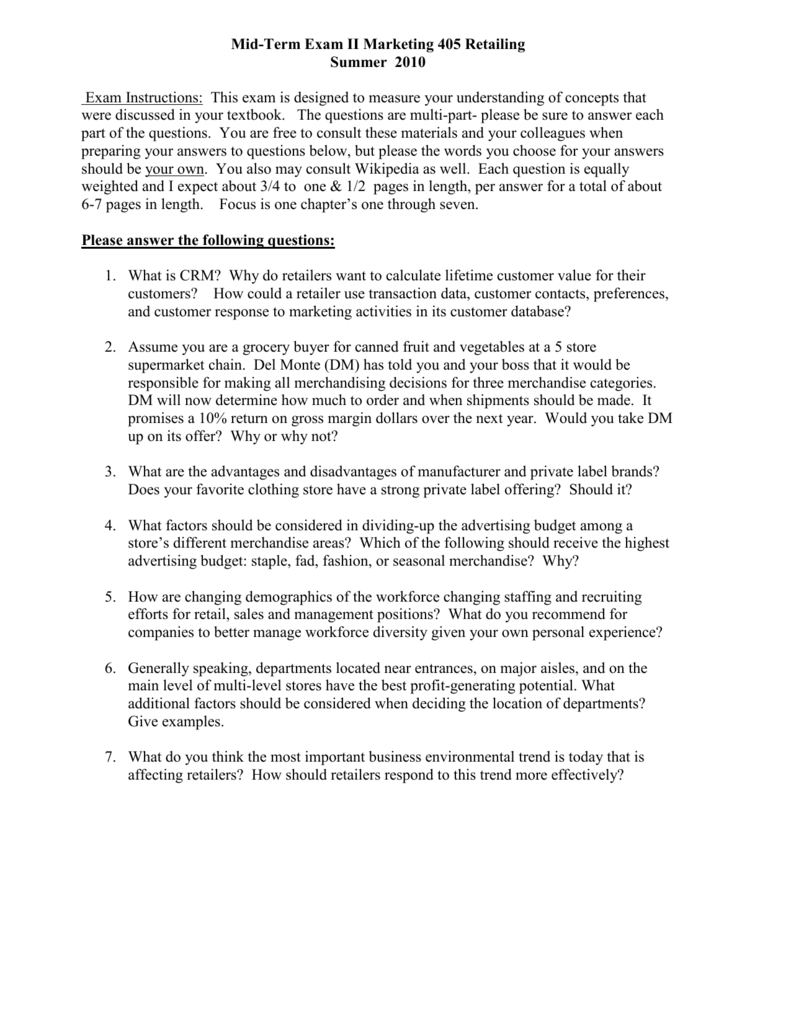

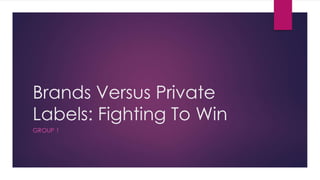

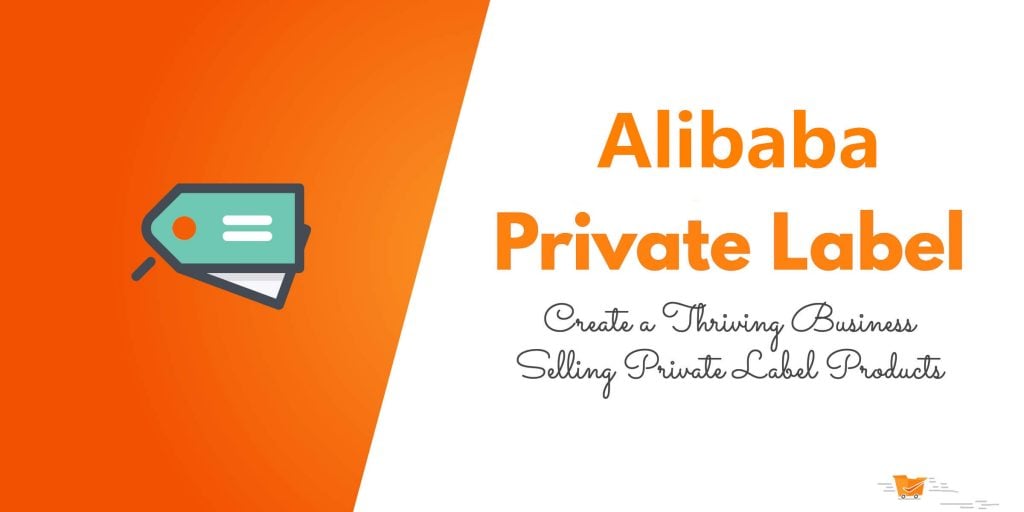

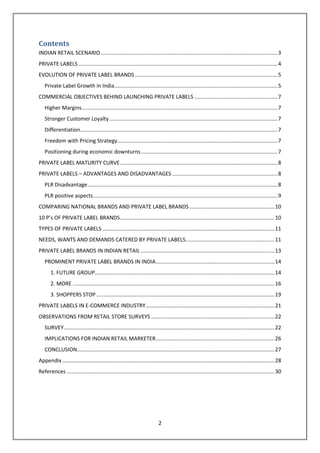



![What is Private Labeling? [Definition, Pros, Cons & More]](https://www.ecommerceceo.com/wp-content/uploads/2021/06/How-Private-Labeling-Works.png)


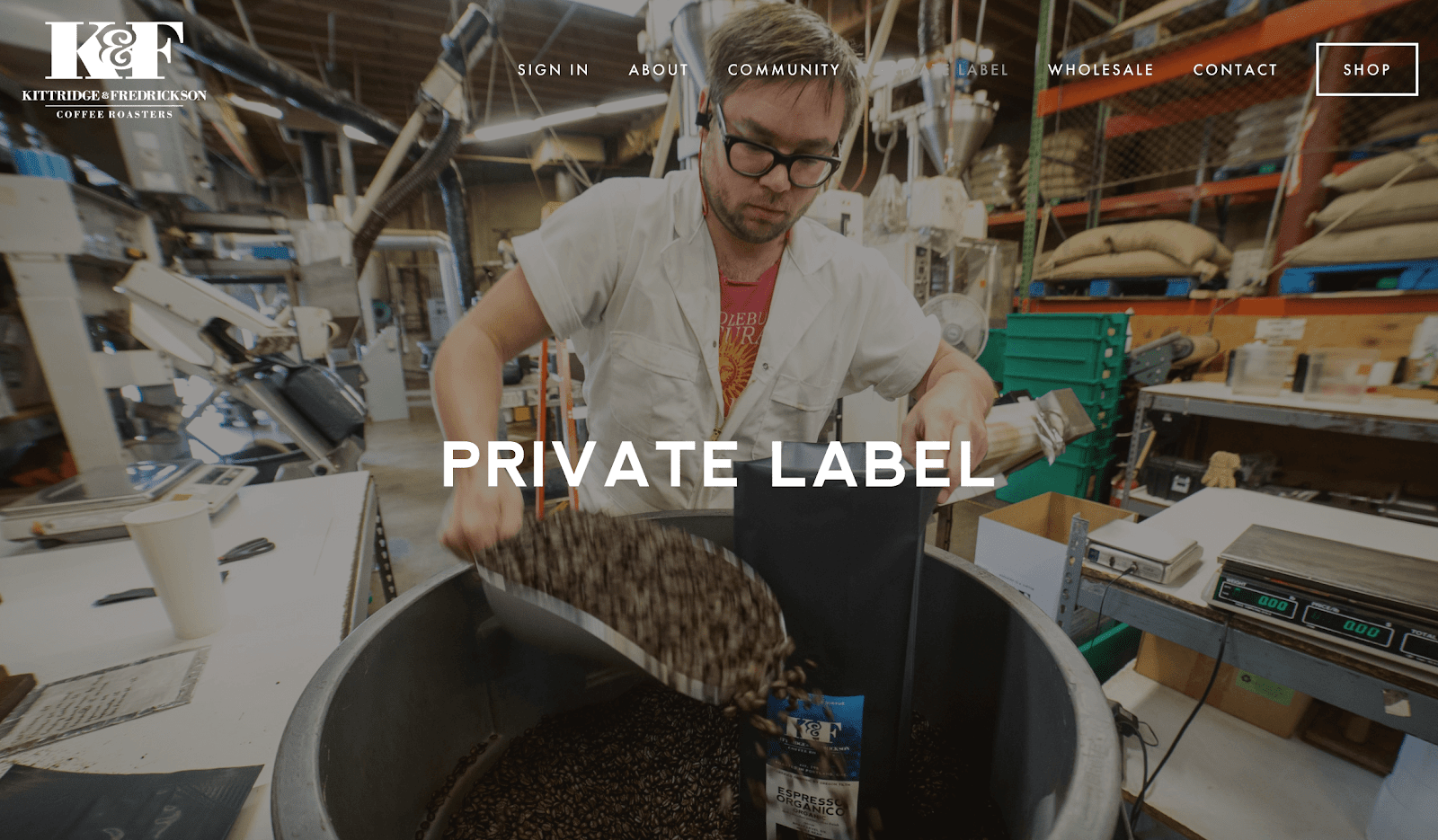

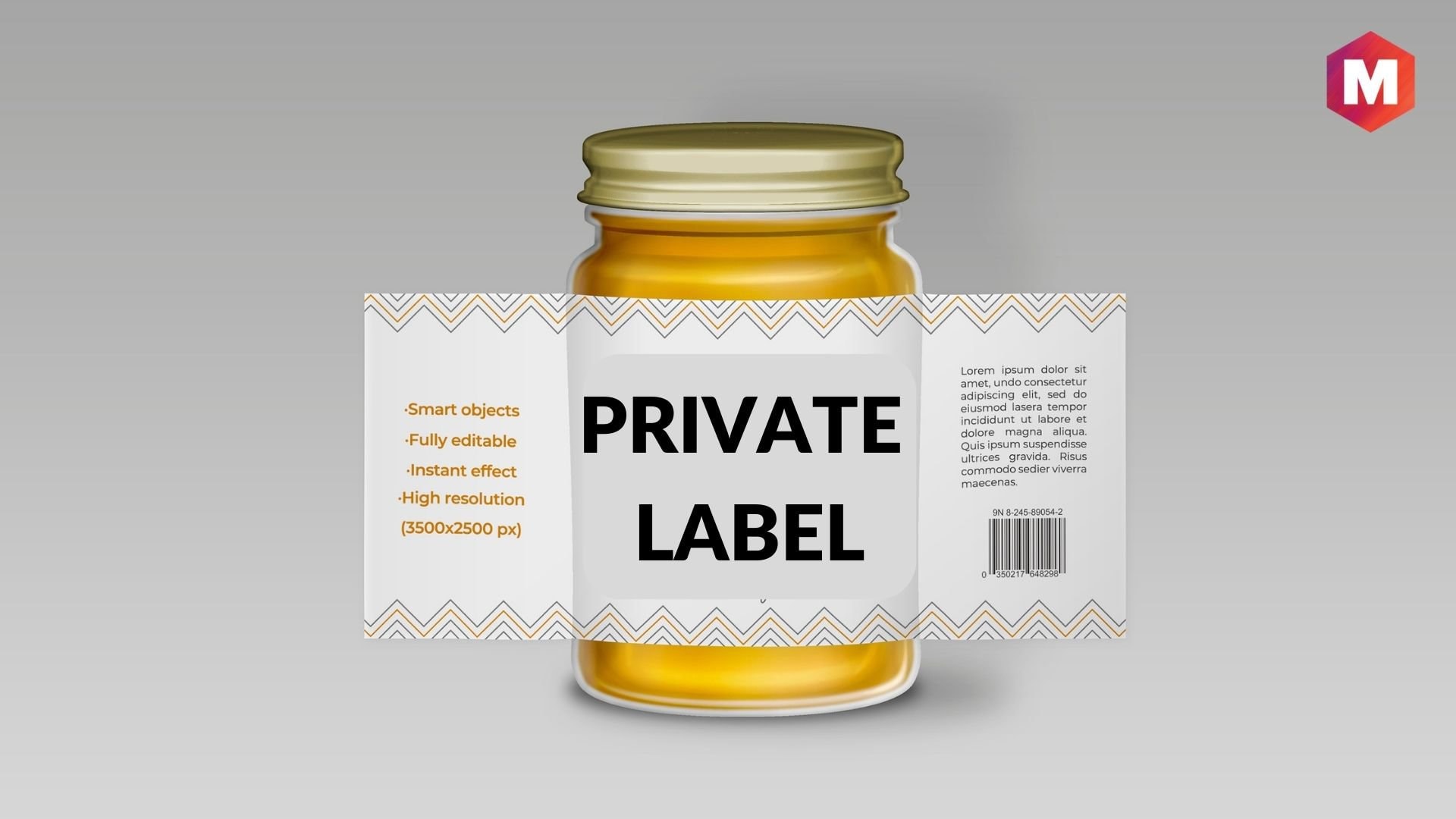

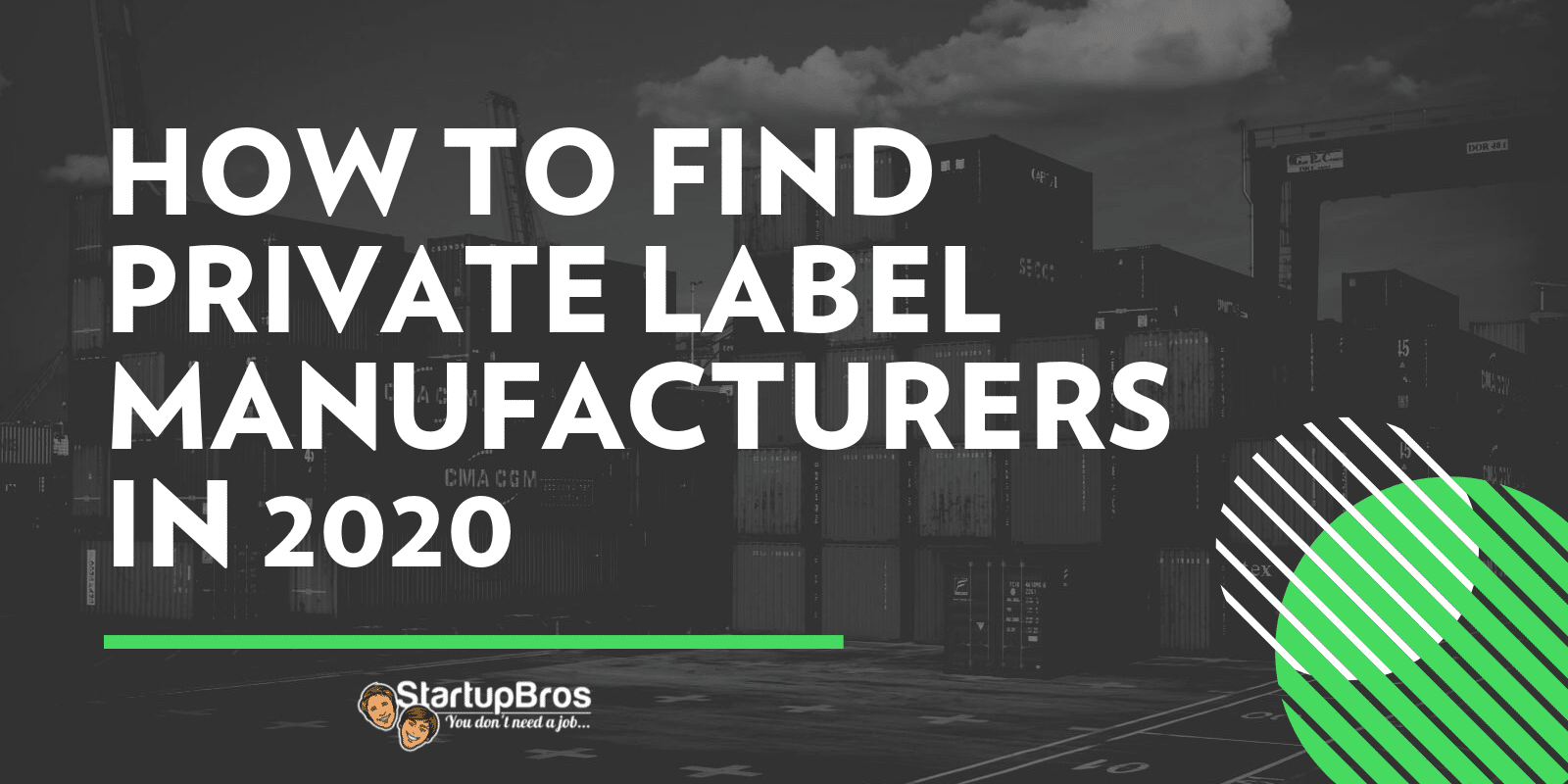




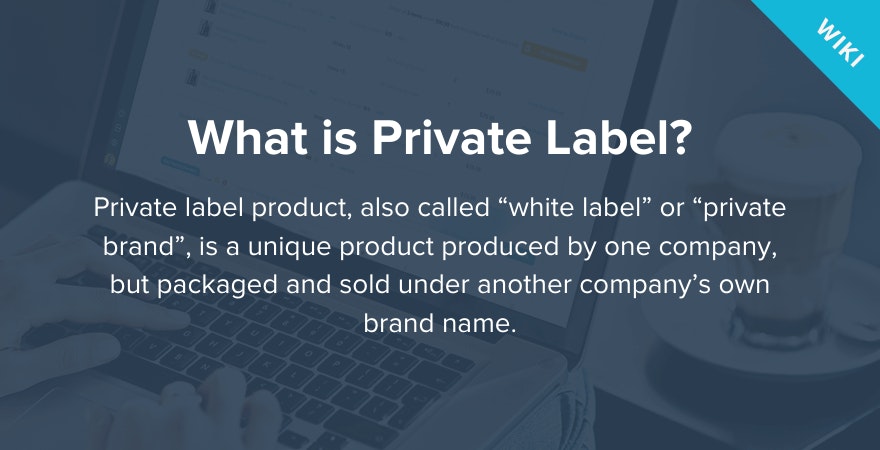
![PDF] In search of loyalty: private label packaging solutions ...](https://d3i71xaburhd42.cloudfront.net/ffd2554ed318d5e7ed83b219d158760361314783/39-Table2.3-1.png)
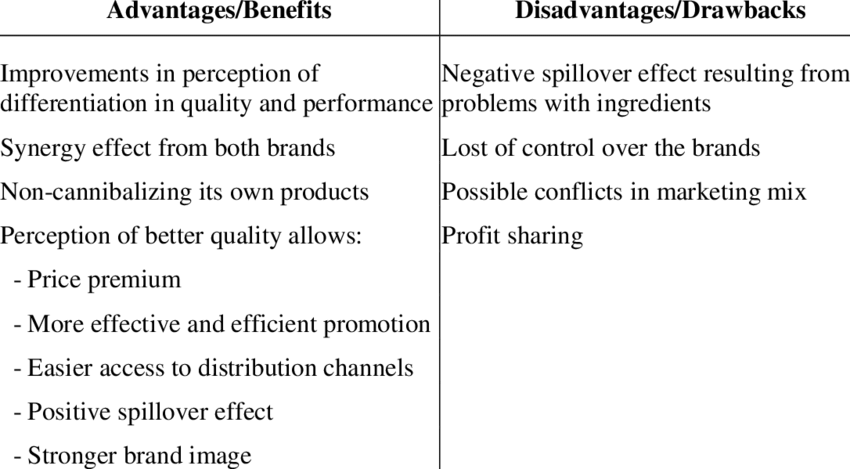



:format(webp)/cdn.vox-cdn.com/uploads/chorus_image/image/56124895/tj_lead.1502298009.jpg)
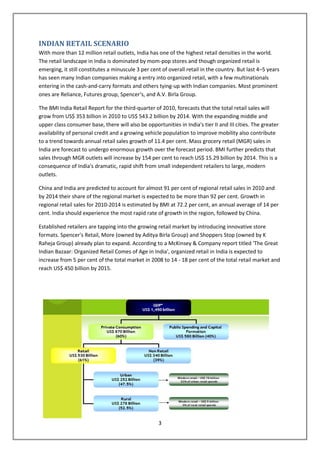




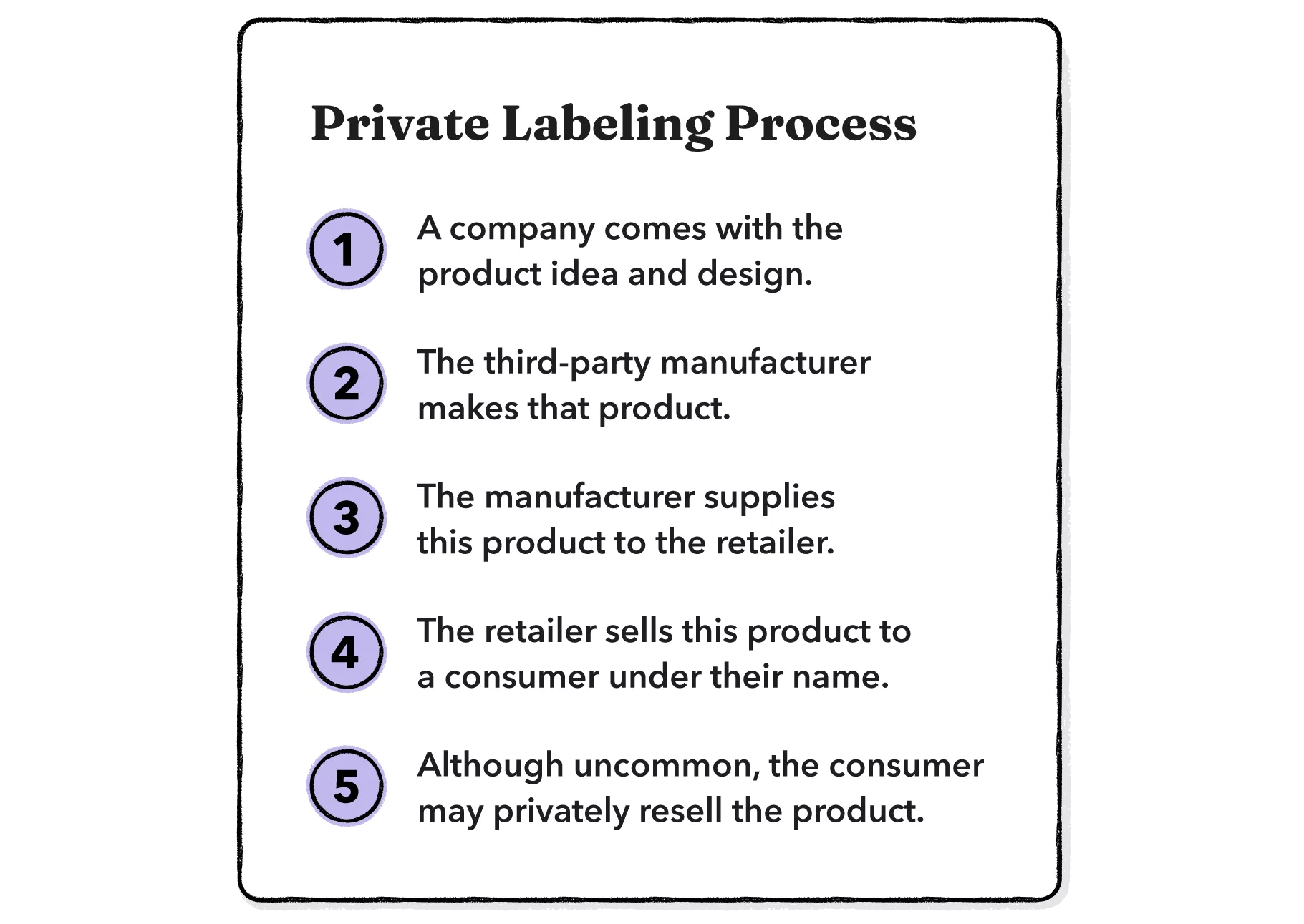
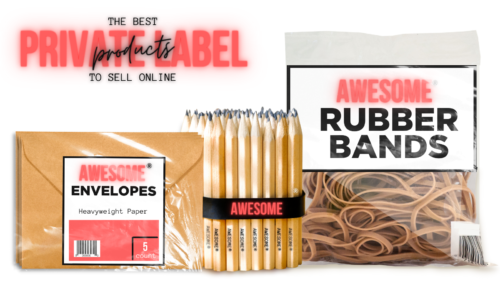
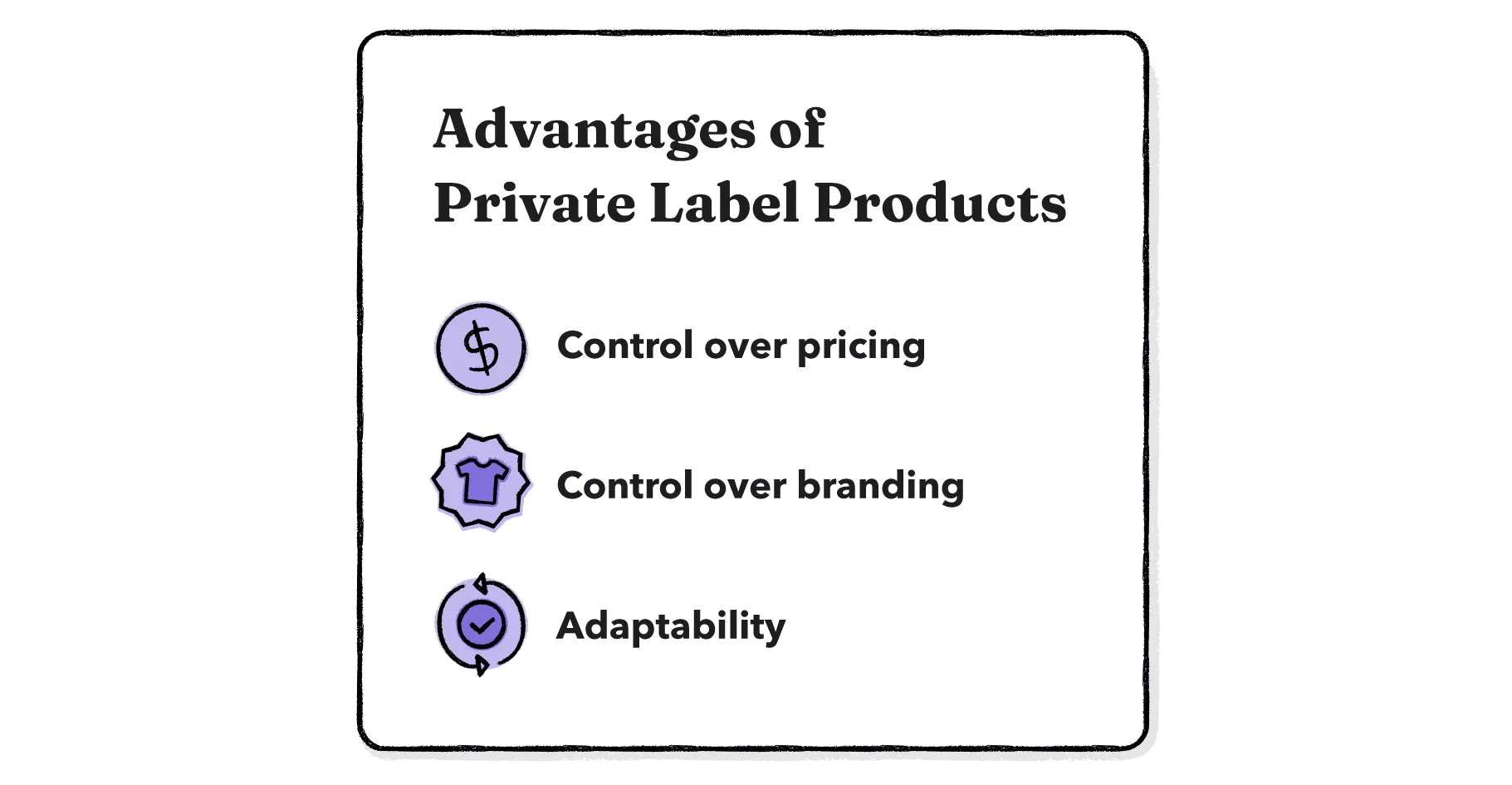
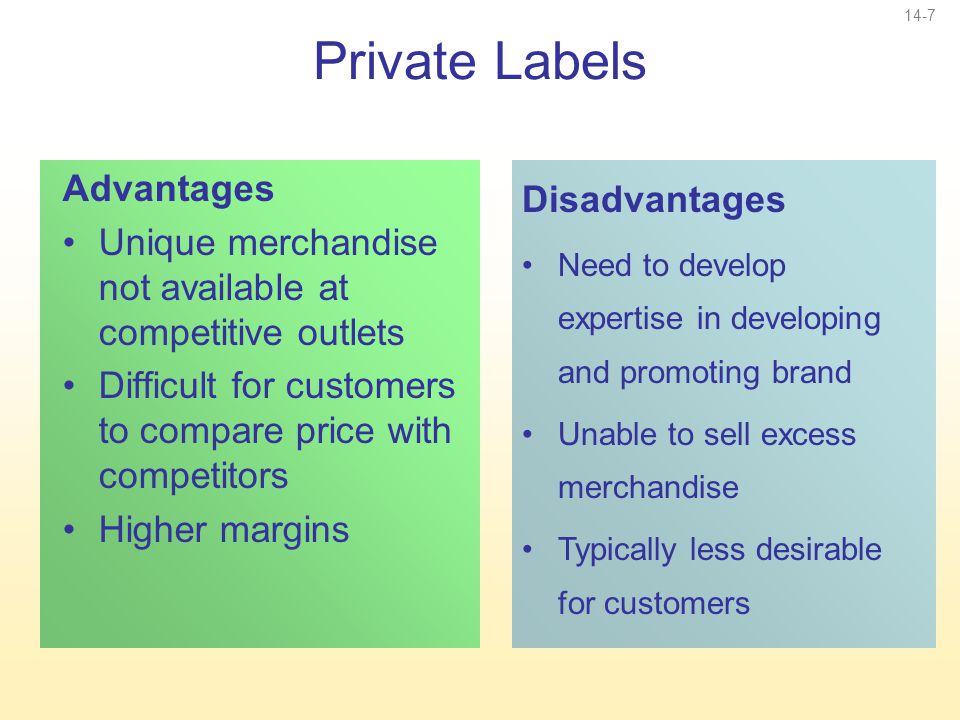
Post a Comment for "43 private label advantages and disadvantages"